More outraged families say loved ones were wrongly buried in a Mississippi pauper’s field
This article is part of “Lost Rites,” a series on America’s failed death notification system.
FLORENCE, Miss. — For more than 10 months, James Aaron Moran’s family searched homeless encampments and shelters for a glimpse of his dark brown hair and deep blue eyes. They reported him missing to police. They called jails and hospitals. They posted about his disappearance on Facebook. At one point, Moran’s ex-wife says, she called the Hinds County coroner’s office and was told it had no record of him.
But that wasn’t true.
In early December, one of Moran’s relatives saw an NBC News article detailing how the outlet’s reporters had solved the mystery of a man who died and was buried in a pauper’s field without anyone contacting his family. The relative emailed one of the reporters, who found that Moran was also among hundreds of unclaimed bodies buried at the county jail’s work farm.
“He just didn’t deserve to be treated like that,” Moran’s mother, Cheryl Brock, said. “And I didn’t deserve to not be able to say goodbye to my boy.”
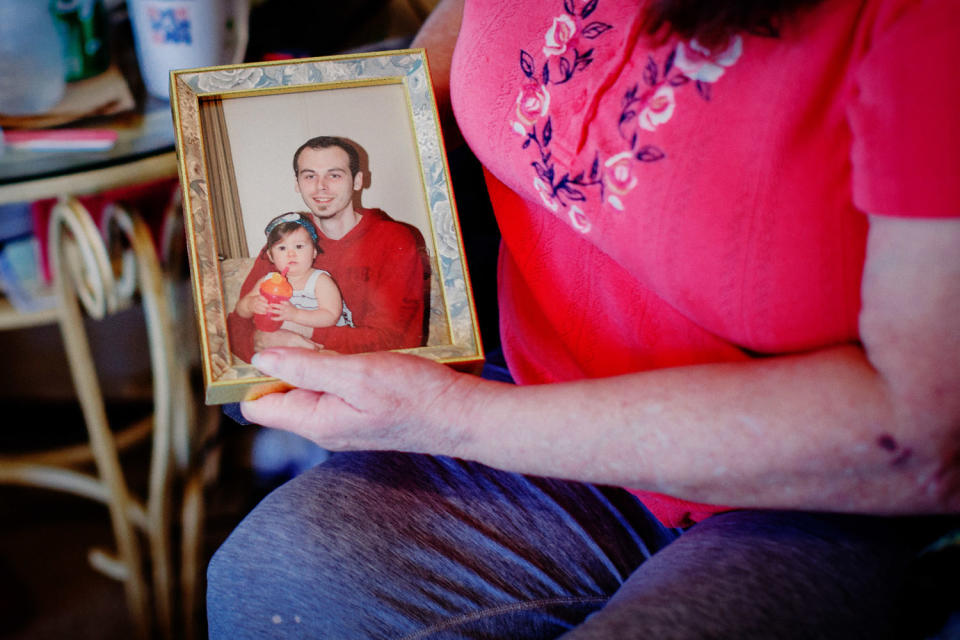
That pain and outrage has become a recurring pattern since NBC News started documenting botched death notifications in Hinds County last fall. The revelations began with the case of Dexter Wade, who was struck and killed by a police car in Jackson, Mississippi, and buried in a pauper’s grave last year without anyone telling his mother, and continued with the cases of Marrio Moore and Jonathan David Hankins.
Now another four families, including Moran's, have come forward to say that they, too, were not told about a loved one’s death and burial. Two of the families spotted their loved one’s name on a list of unclaimed bodies published by NBC News.
As the discoveries grow, so does evidence of systemic breakdowns: The Hinds County coroner’s office and Jackson Police Department repeatedly failed to search law enforcement databases or the internet for missing person reports that would have revealed families searching for their loved ones. In some cases, authorities stopped trying to notify next of kin after an unanswered door-knock or dialing a nonworking phone number. Officials with the police and coroner’s office have blamed each other.
Once families learn about the deaths and burials, they often say they have a difficult time obtaining more information — making repeated calls to the coroner’s office before getting a response, and getting contradictory explanations from the coroner’s office and police. In what families described as a final insult, some have been asked by the coroner’s office to pay hundreds of dollars to claim their loved one's body or have it exhumed. Three families have done so.

Grieving families say their ordeals reflect a disregard for people who struggle with mental illness, homelessness and addiction.
“They looked at him as if, oh, he’s a drug addict, he’s homeless, and he probably don’t have nobody who cares about him,” said Nora Weston, whose son, Micheal Akeem Williams, died more than three years ago and was buried in the pauper’s field without her family being told. “And that was totally not the case. We always had that hope of him turning around.”
Jackson Police Chief Joseph Wade declined to answer questions about the new cases last week, saying in a statement that he expected litigation. “However, my heart’s prayers, empathy and condolences go out to the families,” Wade said.
Last fall, the department adopted a death notification policy requiring officers to make “every effort” to notify the next of kin.
Hinds County Coroner Sharon Grisham-Stewart — who is required by state law to “make reasonable efforts” to notify a dead person’s family — did not respond to requests for comment. When confronted earlier this month by the mother of one of the men wrongfully buried in the pauper’s field, Grisham-Stewart apologized and said: “I don’t know how to find people.”
The coroner’s office says it has a policy on next-of-kin notifications, but won’t say when it went into effect.
The Hinds County Board of Supervisors recently adopted a policy that will require the coroner’s office to check missing persons registries before requesting a burial, said Tony Smith, a member of the board. It has not yet gone into effect or been shared with the public.
"We realize there is a problem, and there has to be a better way,” Smith said. “People have the right to know about their loved ones.”
Rep. Bennie Thompson, D-Miss., said in an interview last week that the new cases show the need for further reforms that hold coroners and law enforcement to account for their responsibilities to families.
“Everybody is a human being,” he said. “Everybody has the expectation in death to be treated with dignity.”
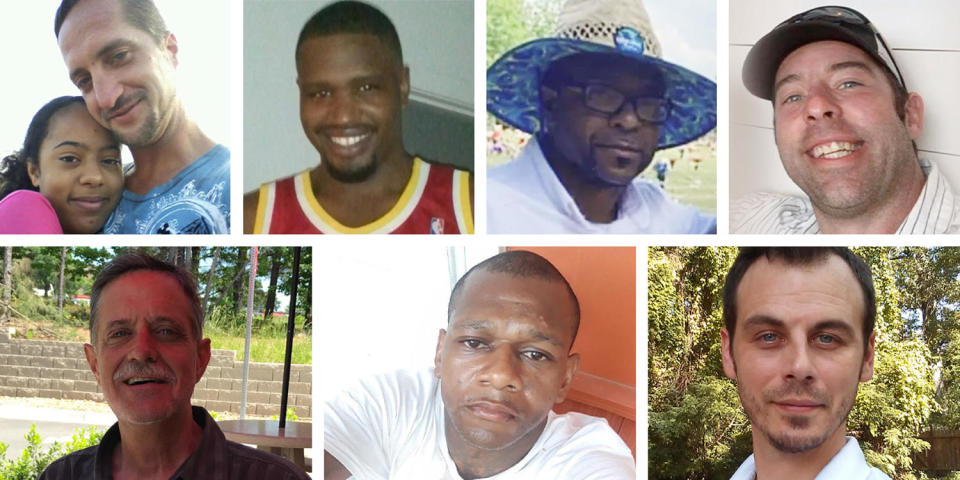
On Jan. 29, 2023, Moran, who was known by his middle name, Aaron, called his mother and apologized.
His call was anguished but typical. “He told me he knew he’d done wrong and he was sorry and that he was going to do better and get his life together,” Brock, his mother, recalled.
Moran, 38, had schizophrenia and anxiety disorder and was addicted to drugs and alcohol, his family said. He had become homeless after being kicked out of relatives’ homes for stealing and behaving erratically. Brock had put him through rehab multiple times and always took him back, but complaints from neighbors at her trailer park led to an ultimatum from the manager: get rid of her son or be evicted. She bought him a phone to keep in touch.
But after that Jan. 29 call, Moran’s family didn’t hear from him. It was unusual for him to not check in with his mother, brother, ex-wife or 11-year-old daughter, whom he adored. Moran was ill, but he was also thoughtful, caring, smart and resourceful, a gifted cook and guitarist who liked to keep himself well dressed.
“No matter how messed up he was, he would always call me and I would answer and just listen to him,” Moran’s brother, Joseph Moran, said. “And so when I didn’t hear from him, I knew something was wrong.”

The family called jails, hospitals, rehab facilities and homeless shelters, and drove around Jackson looking for him. In late February, Brock went to her police department in Richland, Mississippi, and reported him missing.
Records show that Richland police entered Moran’s name into a national law enforcement database called the National Crime Information Center. That database helps police solve cases by sharing information about missing persons and unidentified bodies. Over the next few months, a Richland detective, Justin Barnette, visited homeless camps and abandoned hotels, called hospitals and jails and knocked on doors. He came up empty.
Although Moran had hurt his close family members, they loved him, worried about him and wanted to know what happened to him. The more time that passed, the greater their dread grew. But the lack of answers allowed for the possibility that he was still out there, alive somewhere.
Moran’s ex-wife, Jessica Marin, said she repeatedly called the Hinds County coroner’s office in Jackson, and most of the time no one picked up. But on April 11, she said, someone answered. Marin said she asked the person if they had a body identified as Moran’s. “They said they didn’t have anyone in their system by that name,” Marin recalled.
That was wrong.
Moran’s body had arrived at the county morgue more than two months earlier, records show.

Police records obtained by NBC News show that Moran died on Jan. 30, 2023 — the day after Brock last spoke to him — when he was struck by multiple cars while walking across Interstate 55 in Jackson.
A coroner’s report provided to NBC News in response to a public records request shows that a deputy Hinds County coroner arrived at the scene and was told by a Jackson police officer that Moran had been identified by a picture ID card. “He was a homeless guy,” the deputy coroner wrote. “No next of kin at this time.”
No one at the coroner’s office, which examined his body, nor the Jackson Police Department, which investigated the fatal collision, reached Brock or anyone else in Moran’s family.
A coroner’s office investigator and a police detective later told Moran’s family that they each went to Brock’s door in the days immediately following his death, but she was not home. It is not clear whether authorities made additional efforts. The coroner’s office and Jackson police did not respond to questions about the case.
On March 31, the coroner’s office asked the Hinds County Board of Supervisors for permission to bury Moran in a pauper’s field on the grounds of the county jail’s work farm, records show. Three days later, the board approved the request, along with several others, without discussion in a vote that lasted 12 seconds.
Moran’s family was left clueless. In June, Brock posted photos and a description of Moran online, asking for help finding him.
On July 14, Moran’s body was buried in the Hinds County pauper’s field, along with the unclaimed bodies of 12 other people, including Dexter Wade and Marrio Moore, county records show. Moran’s grave was marked only by a number: 669.
On Nov. 20, what would have been Moran’s 39th birthday, his brother, Joseph Moran, posted an appeal on Facebook. “As many of you know no one has heard or seen my older brother since February and today is his birthday, if you are the praying type I just ask that you send up prayers that we stay strong and trust in the Lord that he is ok and eventually he might find his way back to us and his daughter.”
The following week, Brock again posted photos of her son to Facebook: “If anyone see him contact me & brother, Joseph Moran. Keep the prayers coming. God Bless us All.”
By then, it was difficult to imagine that something terrible hadn’t happened.
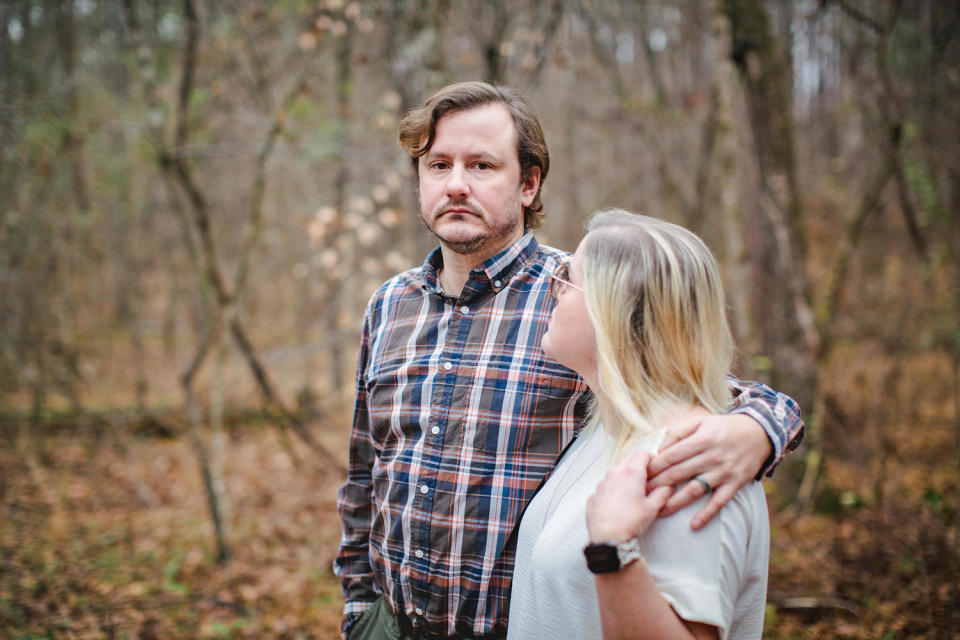
For families of missing people, the search can feel endless.
Sarah Bushnell Harrell said she waited four years to learn what happened to her father.
Mark Nelson Bushnell’s alcoholism alienated much of his family and led to his becoming homeless in Jackson. But Bushnell Harrell, who lives in South Carolina, tried to stay in touch with him every couple of months, mainly through his case workers. He also listed her as his contact whenever he ended up in the hospital, she said.
On Sept. 21, 2019, Bushnell Harrell’s wedding day, she got a call from a case worker who asked if she had time to talk to her father. She told the case worker it wasn’t a good time. She asked that her father call again the following week. She assumed he would.
“That moment is one I will regret for the rest of my life,” Bushnell Harrell said.
Months passed. Covid hit. Her father didn’t call. Bushnell Harrell said she considered reporting him missing to police, but other relatives talked her out of it. Instead, she and her husband searched for him every time she visited Jackson to see family. She drove around areas where homeless people lived and showed his picture to anyone who would look. She called hospitals, jails and police departments.
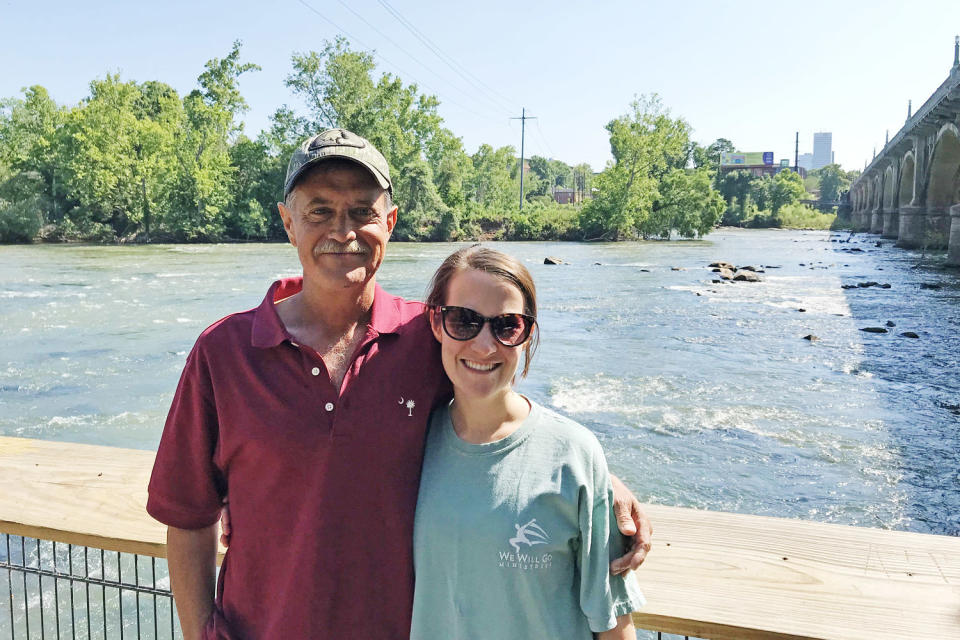
It didn’t cross her mind to call the Hinds County coroner’s office. “I guess I had just been living in denial or not wanting to believe that was even an option,” Bushnell Harrell said. “I truly believed that if he was dead someone would call me and let me know.”
In late December, Bushnell Harrell read two news articles: one by WLBT, the Jackson NBC affiliate, and one by NBC News. Both included searchable lists of people buried in Hinds County’s pauper’s field. On the lists, she found her father. He died at 57 on Jan. 6, 2020, and was buried three months later.
“It was just shell shock,” Bushnell Harrell recalled. “My biggest fear had come true, and it had happened years ago and I never knew.”
She said she called and emailed the coroner’s office in late December and into January but did not get a reply. She said she reached out to the county and the Jackson Police Department and was told to contact the coroner’s office.
In late January, she said she finally got a call from the deputy coroner who had handled her father’s death. She said he told her that her father had been struck by an 18-wheel truck in Jackson, a detail that was later confirmed in his death certificate. The deputy said he found medical records that indicated Bushnell had two daughters, one of whom lived in South Carolina, Bushnell Harrell said. She said she asked the deputy why her family wasn’t notified, and the deputy said that was the police’s responsibility. He said the police had technology to help locate families that the coroner’s office lacked. He apologized repeatedly, she added.
Bushnell Harrell said she has received her father’s death certificate but not the police’s accident report.
The coroner’s office has not responded to NBC News requests for records on the case. Jackson police have not provided any reports related to the fatal collision.
Bushnell’s family believes that investigators didn’t try hard enough.
“I think they saw him, he’s homeless, they thought nobody cared, and they didn’t care,” said Page Benge, Bushnell’s ex-wife. “He got no human respect. He got nothing.”
Bushnell Harrell wants to have her father’s body exhumed from the pauper’s grave and have him buried properly in Louisiana, where he is from. But first she is going to have to pay Hinds County $300 to get his body.
“It’s just really upsetting to think I have to pay them to correct a job they didn’t do in the first place,” she said.
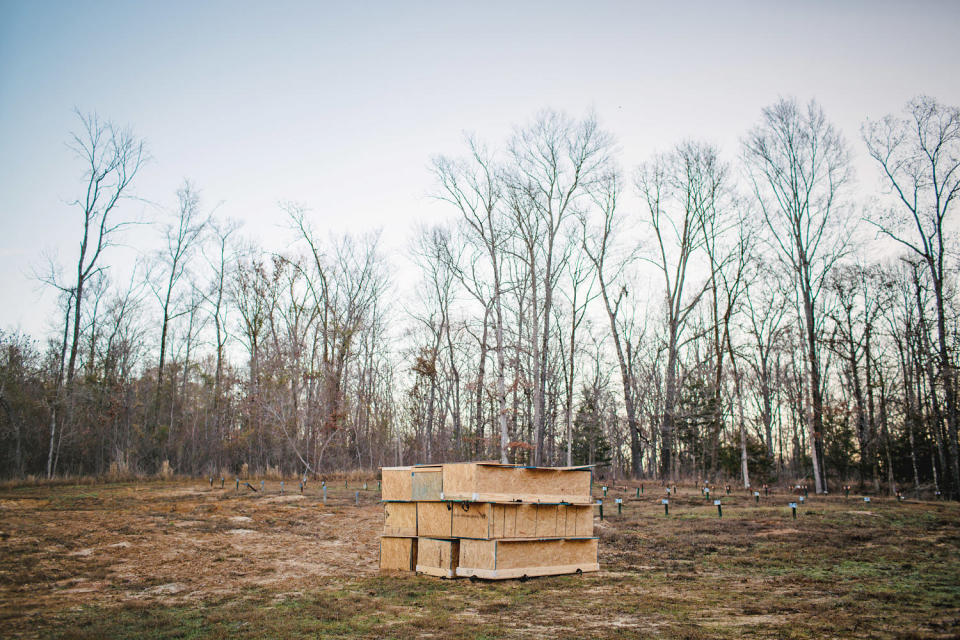
The feeling that the government saw their loved ones as unworthy of respect runs through all of the families interviewed by NBC News.
“I just don’t feel as if anyone cares,” Nora Weston said. “It was still somebody’s child, somebody’s father, somebody’s brother, uncle, cousin. They have family members who want to know, no matter their situation. And for them to not tell us, to find out the way that we found out, I feel like there was no concern or no empathy.”
Weston’s son, Micheal Akeem Williams, 31, struggled with mental illness and drug addiction. He died at the University of Mississippi Medical Center in August 2020 after suffering a stroke, but no one told his family, Weston said. He was buried in the pauper’s field that November.
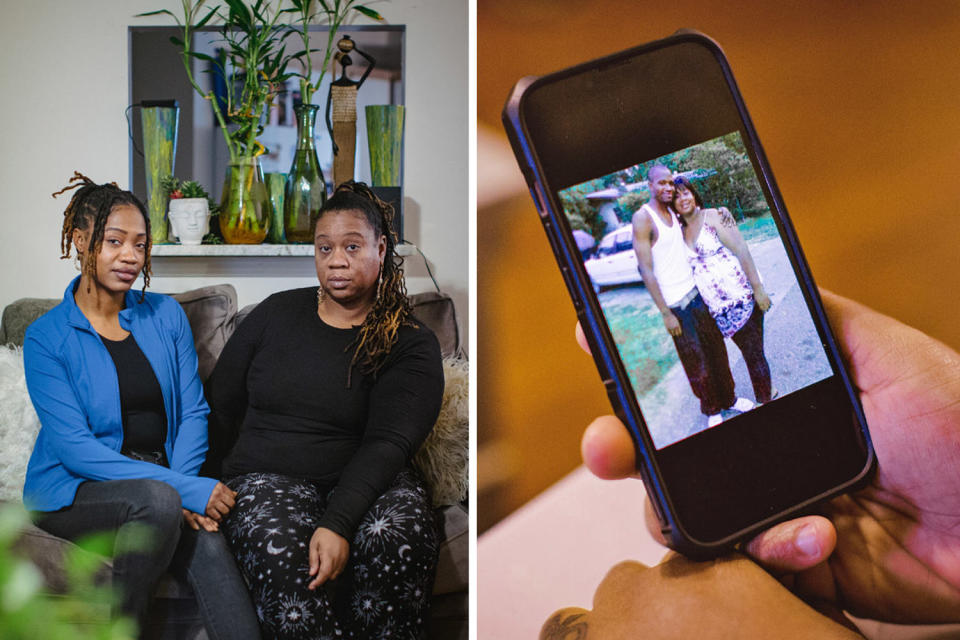
The hospital declined to comment. Its policy on handling deaths of unidentified and unclaimed people says staff should “make every reasonable effort to discover the patient’s identity and relatives” and if the body remains unclaimed, alert the Hinds County coroner’s office.
The coroner’s office did not respond to requests for comment.
Williams' family ultimately learned about his death through a letter from a Social Security office in January 2021 that said a “lump-sum death payment” was available to his daughter.
T’Keyah Williams, Micheal Akeem Williams’ sister, said she sometimes thinks she sees her brother on the street in Jackson, and that triggers anxiety attacks.
“We wish we would have known,” T’Keyah Williams said. “We would have been there for him. We could have sent him off the right way. It’s just a lot of unanswered questions.”
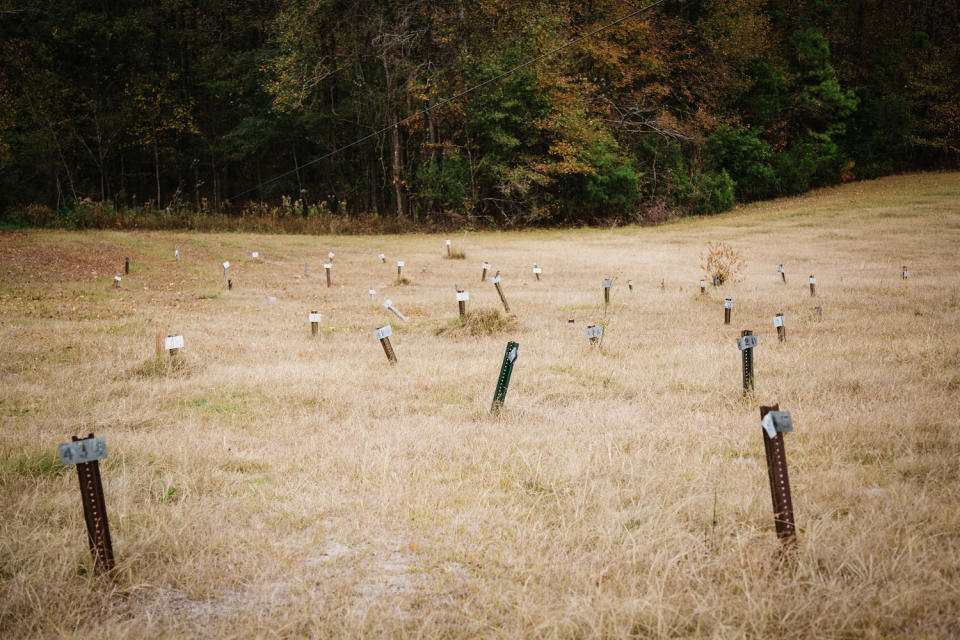
The family of David Shane Kelley has questions, too.
Kelley, 42, was homeless in Jackson, addicted to drugs and on parole for sexual battery of a young girl in late 2022 when he lost contact with his family, including siblings in Arkansas and an adult daughter in South Carolina. His sister, Raina Houston, said she had tried without success to get authorities’ permission for him to come live with her, believing he’d have a better chance of staying healthy and out of trouble.
In March 2023, Kelley’s brother and an aunt said they got automated texts from Vinelink, a system that provides updates on the custody status of people convicted of crimes. The texts said Kelley’s status had changed, the relatives said, and when they logged into Vinelink, they found Kelley listed as “deceased.”
Billy Kelley, David Shane Kelley’s brother, said he was in disbelief. He said he began calling various agencies, including the Hinds County coroner’s office and Jackson Police Department, for more information. He said he learned that his brother had died of an overdose on Oct. 12, 2022, and had been buried.
Billy Kelley said he asked police and the coroner’s office why his family wasn’t told about his brother’s death at the time, and both agencies said they’d tried to reach relatives.
The coroner’s office has not responded to NBC News’ questions about the case, or requests for records on it. Jackson police declined to comment on the case and have asked for more time to respond to a records request.
Billy Kelley and six other close family members said they knew nothing about David Shane Kelley’s death until the Vinelink text.
Billy Kelley said the coroner’s office told him that in order to get a death certificate and claim his brother’s body, the family would have to pay $500. No one had the money, he said, so he started a GoFundMe that raised only $170.
Over the next several months, relatives said they tried to get more information from the coroner’s office but didn’t hear back. As time passed, family members said they began to wonder if David Shane Kelley really was dead.
“In some way we were hoping that they had mixed him up with someone else,” said Aj’a Sims, his daughter.
Then, in early December, family members read NBC News’ list of Hinds County pauper’s burials. It gave the same October 2022 date of death for Kelley as his brother had been given months earlier and said Kelley was buried in February 2023. For those who had doubted his death, this was now confirmation.
“I just fell to my knees and I knew he was really gone,” Houston, his sister, said. “And I had to face it.”
Since then, Houston said, she has repeatedly called the Hinds County coroner’s office for information about what she needs to do to bring her brother’s body home to Arkansas. No one, she said, has called back.
Houston said she is troubled by the image of her brother lying in a pauper’s field along with others who were buried there without their families’ knowing they were dead.
“They shouldn’t be able to get away with this,” Houston said.
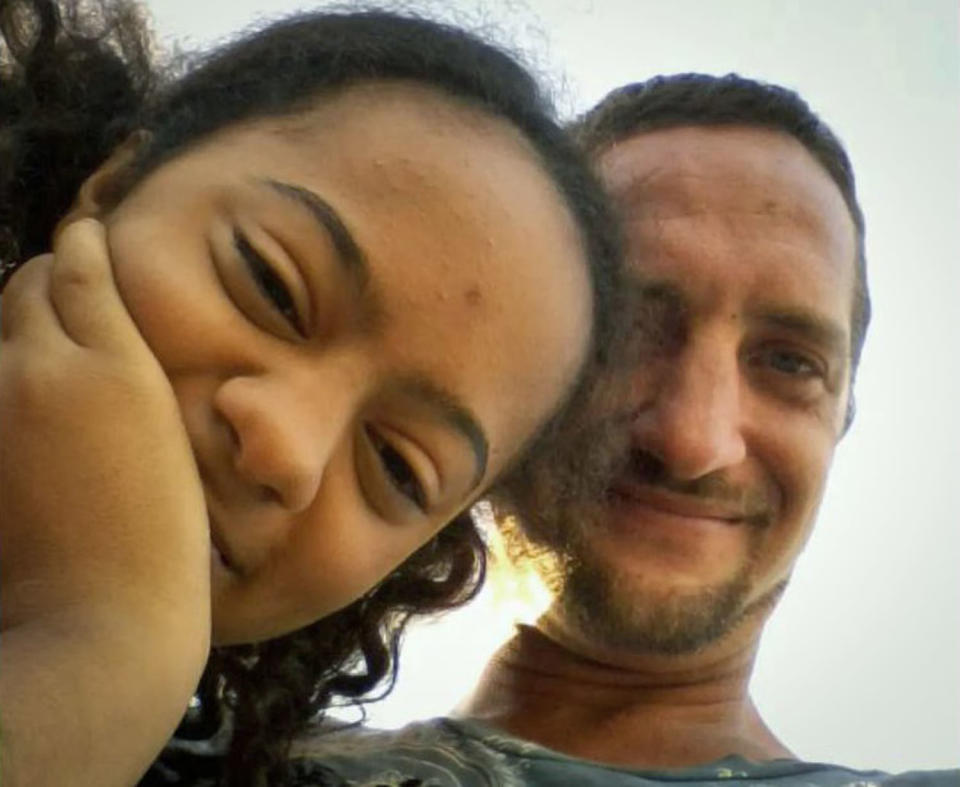
James Aaron Moran’s family found out the truth from an NBC News reporter in December, nearly 11 months after they’d last heard from him.
On Dec. 10, Kacey Moran, Joseph’s wife, read NBC News’ article about Hankins. She emailed the reporter, who found Moran’s name on burial records and shared the information with the family. It shocked and angered them.
“What kind of sense does that make to let the family still be looking and hoping for almost a year and they never entered his name in a computer?” Brock, his mother, said. “It’s just so inhumane. I feel like they treated him like an animal instead of a person, all because he was homeless.”

Marin, Moran’s ex-wife, said their daughter, now 12, has not begun to process her father’s death. She is distressed knowing that her father died alone and homeless.
“If anything good comes of this then I hope the government will learn their lesson and treat humans like humans,” Marin said.
Brock said she ended up paying $300 to reclaim and exhume her son’s body. His remains were removed from the pauper’s grave on Feb. 2 and then taken to a funeral home. The mortician told Brock that Moran’s wallet — including his driver’s license with his mother’s address, Social Security card and a photo of his daughter — was inside the body bag.
Moran’s family held a memorial service for him on Feb. 10. “This has been a lengthy, painful process, but we should be at peace knowing Aaron is in a better place,” Joseph Moran said in his eulogy.
Moran’s family had his body cremated. Some of his ashes will go into lockets that Brock, her mother and Joseph Moran will wear on necklaces. The rest will go in an urn, and, Brock said, with her into her grave when her time comes.
She’s been haunted by a recurring dream, she said. In it, she sees Aaron and he is screaming her name.
“All I wanted to do is say bye to my baby,” Brock said. “And they took that away from me.”
This article was originally published on NBCNews.com

